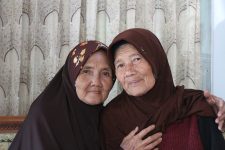Helping Migrants Understand the Legal System

Migrants and refugees often come to Australia from war-torn and poverty-stricken countries in search of a better life for themselves and their families.
Their birth countries may experience high levels of corruption, with police and government officials willing to turn a blind eye to illegal activity in exchange for substantial bribes.
The countries may lack a rigid criminal justice system, meaning that the law is not consistently applied to members of the community. People from such countries may not have been subject to the levels of control which Australian citizens simply accept as a part of everyday life.
These problems are compounded by cultural differences, meaning that certain behaviours which are not deemed to be criminal offences in the country of origin may attract heavy penalties under Australian law.
For instance, in some developing countries, certain acts of domestic violence against children and partners are not considered to be criminal offences, but are resolved directly by the parties involved and their extended families. In such countries, AVOs simply do not exist, and the possibility of going to prison for committing an assault within the family is reserved for the most serious cases only.
People who migrate from these countries and commit domestic violence offences in Australia may therefore be shocked to discover that they could face a possible prison sentence if found guilty. They may struggle to understand why the criminal justice system has intervened.
They may feel as though the court system is unjust, or that they are being treated unfairly – simply because they do not understand our legal system. And most of us would agree that the prospect of coming before a court in a foreign country without fully grasping the local language would be stressful and daunting.
Migrants and refugees coming to Australia from such countries often lack English literacy skills and find it difficult to understand written contracts and court paperwork. For example, they may find it hard to understand the conditions attached to good behaviour bonds – or even what they are. Without being able to read or speak fluent English, they may soon find themselves back before the court for unwittingly breaching the conditions of a bond.
Migrants and refugees will often have limited disposable income, and may lack the financial resources to hire a criminal defence lawyer who can assist them in understanding complicated legal concepts. And with the recent funding cuts to Legal Aid and other community legal centres, migrants are likely to face even greater hurdles in navigating our justice system in the future.
When you put all these things together, it’s easy to see how some migrants can come before the courts without properly understanding the nature of the criminal charges against them, let alone the basics of court process and protocol.
Migrants and police
Studies have found that young people from migrant or refugee backgrounds are particularly at risk of coming into contact with the criminal justice system due to the above factors combined with the stress and uncertainty associated with establishing a new life in a foreign country.
The situation is not assisted by the fact that only very limited services are available to young migrants to help them better understand our system. On top of this, migrants and refugees are often unfairly targeted by police and are unaware of their rights when it comes to dealing with them.
African youths in Melbourne have reported regularly experiencing racial discrimination, threats and abuse at the hands of police. The problem was so widespread that a Federal Court case was mounted against the Victorian Police force in 2013 by six African men who had repeatedly experienced racial profiling and targeting. One man reported being stopped by police every second day whilst simply walking on the street or catching the train.
An analysis of police data found that African men in some Melbourne suburbs were 2.5 times more likely to have conversations and interactions recorded by police, despite committing less crime per capita than other groups.
The Melbourne case was eventually settled out of court after police agreed to conduct an inquiry into stop and search procedures and to train officers and recruits on multiculturalism.
How should we address these issues?
In recent months, many Australians have openly voiced their distrust of foreigners – calling for certain groups to be banned from coming to Australia and even expelled from the country.
Such sentiment has been fuelled by sensationalist reporting by certain media outlets, as well as government policies that have contributed to the demonisation of particular groups, especially Muslims, including the banning of specific inmates from communicating in languages other than English.
However, the vast majority of Australians support multiculturalism, and many are in favour of strategies aimed at addressing the overrepresentation of migrants in the justice system rather than demonising and further alienating them.
So, what should we do to educate migrants about the Australia justice system?
One initiative that has been implemented with great success is the Legal Education and Awareness Project, which was pioneered by the South Australian government in 2007. It aims to educate youth from diverse ethnic backgrounds about the Australian legal system and to assist them in understanding what behaviours may lead to penalties under Australian law.
It consists of a number of presentations and interactive activities focusing on topics relevant to young people, including drugs, sex offences, and family violence in a culturally appropriate manner. Over 450 young people have already engaged in the program since its inception.
But while the project has been welcomed in South Australia, other states have so far failed to follow suit; and government cutbacks to social services across the nation suggest that the lack of educational services for new migrants and refugees will continue to be a problem into the near future.






